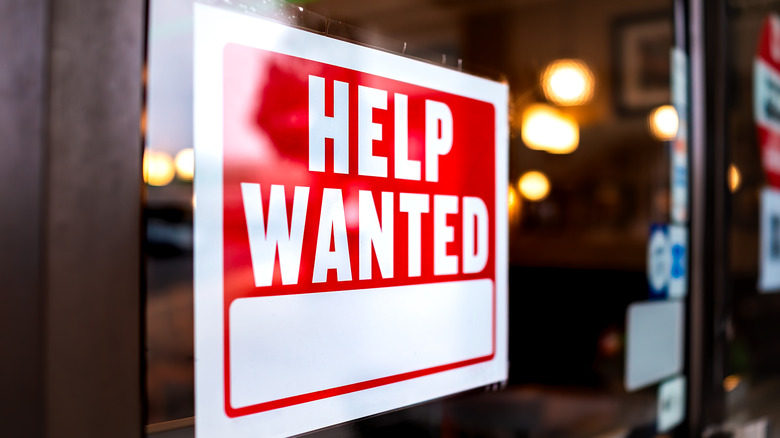Report Finds Labor Challenges Are Affecting New Restaurants The Worst
A massive labor movement shook up the food landscape in 2022, and it doesn't seem to be slowing down in the new year. Workers in the quick-service industry have been in the spotlight, with union initiatives at companies like Starbucks, Chipotle, and McDonald's taking center stage. In a nutshell, the push for union representation highlights workers' collective need for better treatment in the workplace, from higher wages and improved health benefits to fewer schedule changes and shift cuts.
Needless to say, when droves of unhappy employees publicly demonstrate their dissatisfaction with their workplace, people looking for work are likely to shoot their shot elsewhere. Labor shortages are an inevitable hurdle on the road to change, which may or may not encourage companies to seriously evaluate how they treat their employees.
Businesses beyond the fast-food world are seeing a similar trend among workers, which is certainly made worse by the lingering blow of pandemic labor shortages. According to Toast's 2023 Restaurant Industry Outlook Report, turnover has been dangerously high for sit-down eateries lately. New restaurants are in a particularly vulnerable position.
Scheduling is a top issue
In comparison to 32% of existing restaurants, Toast's 2023 Restaurant Industry Outlook Report found that 44% of new restaurants are facing "moderate or extreme" labor challenges. According to National Restaurant Association data cited by CNBC, the restaurant industry workforce was down 6% from pre-pandemic levels in May of 2021.
Even more than the obstacle of sourcing and hiring employees seeking work in the service industry, the report says scheduling is a leading cause of these labor shortages. Fourteen percent of respondents named scheduling issues as a "top three pain point" for their business, while 18% said payroll struggles are their biggest headache.
How can restaurant owners avoid this issue? According to Toast CFO Elena Gomez, it all comes back to treating employees well. "If a restaurant can retain employees and keep them happy, they're going to be able to deliver a great experience to diners and do all the things that come with having a very consistent, predictable talent pool," she says.

